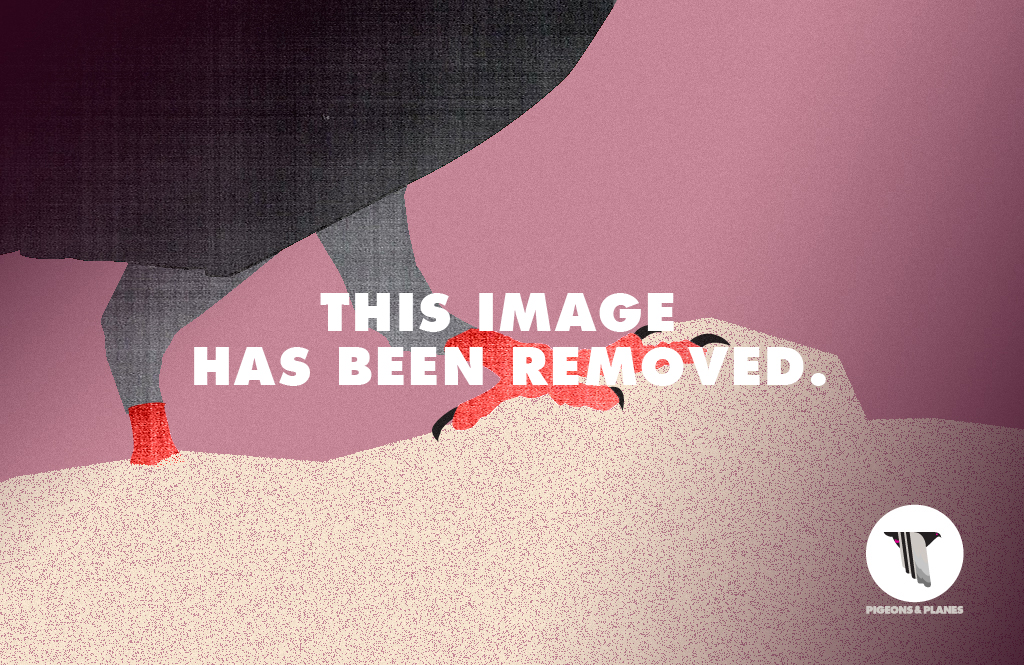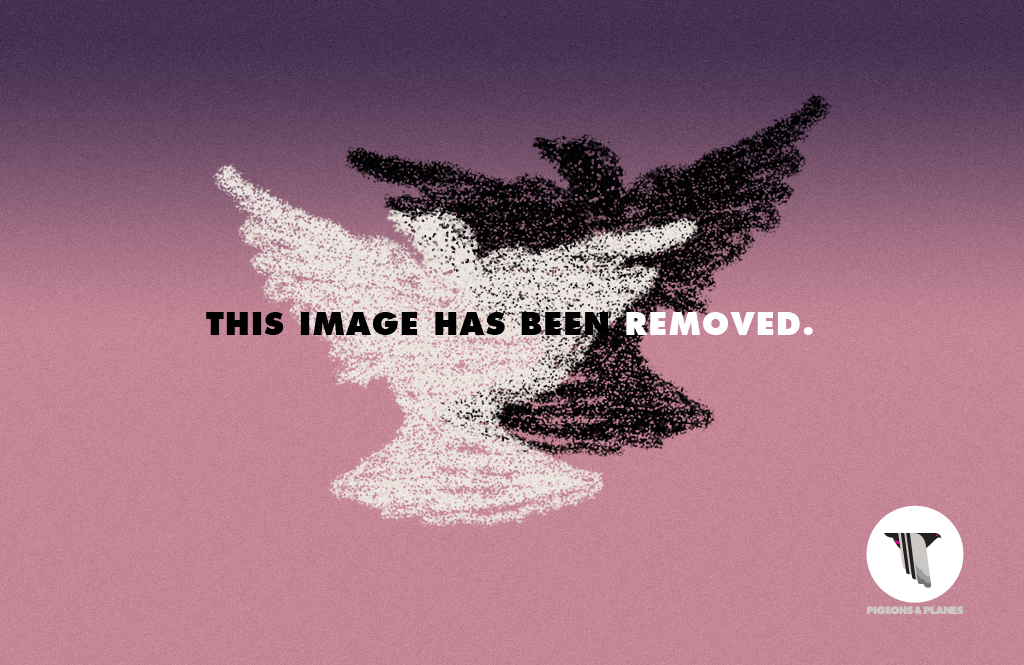1.
I’ve been reading a lot about Lana Del Rey lately. You have too. You’ve heard about her past as Lizzy Grant, her “image change” and “lip enhancement,” and of course her notorious Saturday Night Live performance. You’ve watched as she suddenly went from being put on a pedestal as a media darling to being tied to the whipping post. How did it happen? Why did we all of a sudden decide to collectively stop liking Lana Del Rey? Is it because she isn’t talented? Is it because she “deceived” us into thinking she was some do-it-yourself-er who stumbled upon success? Is it because she failed to entertain us once she got put in the spotlight?
No, it’s not because of any of these. It’s because of who Lana Del Rey’s audience was. From the beginning, it was the indie world that embraced Lana. Her low budget videos of found film circulated around all the blogs while songs like “Video Games” and “Blue Jeans” had her crowned as the next big thing by every pig-nosed critic in the game. But there’s a problem with this audience.
The media that favors indie music is a hard bunch to please, and while they’ve got a keen ear for music, they’ve also developed a twisted liking for brutality. In order to become an authority—which basically means being able to tell people what to like—you also have to make it very clear what NOT to like. In the indie world, this is especially important because the more stuff you dislike, the more special it is when you like something. If you are indifferent towards or react negatively to 90% of things, this will make that 10% that you like seem extra special. Hey, it must be good if that asshole who hates everything likes it, right? Right. The point is, these aren’t the types of critics that ignore what they don’t like. If they don’t like something, they will make it known.
The other thing about this bunch is that they love rooting for the underdog, or maybe more accurately put: they love rooting for the person that everybody else isn’t rooting for. They like stories of heartbroken men retreating into secluded cabins and recording masterpieces. Stories of kids in Idaho who recorded melodic pop in their bedrooms. Stories of misfits, outliers, and have-nots who sprouted like organic herbs through the cracks of the Williamsburg concrete. The voices of hipster media love finding things, discovering things, and above all they are one thing—not sons, daughters, mothers, and fathers, but “tastemakers.” There may be nothing inherently wrong with this word, but there is something wrong when the goal becomes less about sharing what you like and more about influencing what other people like.
Being a tastemaker isn’t just about influencing others. A big part of the game becomes making your own taste. If you’re a tastemaker, you can’t be falling victim to some great marketing scheme, no matter how good the music is. The indie-centric media has been conditioned to reject marketing schemes (at least the obvious ones), and like difficult, cranky babies, they can’t stand being force fed. They will consume what they want, when they want it.
The problem isn’t with Lana Del Rey, it’s with the people she’s being marketed to.
You see, the problem isn’t with Lana Del Rey, it’s with the people she’s being marketed to. Lana Del Rey is being marketed to people that don’t like being marketed to, people who react viciously when they realize they “fell for” something that isn’t authentic.
Let’s go through this piece by piece and break down some of the problems that critics point out, then see how other artists with the same “problems” have been treated.
2.

Problem 1: Her lack of authenticity
This complaint is probably the most common. In their review of her album, the Los Angeles Times said, “Consisting mostly of fictions from an imagined America, on Born to Die, Del Rey presents songs about the ragged life as invented by someone who doesn’t look to have ever swigged burnt 3 a.m. truck-stop coffee –- a Williamsburg trucker’s cap come to life.”
The basic idea is that Lana’s label has dreamed up this weathered but glamourous vintage image for her and it’s all an act. An act? You guys realize that this is the entertainment business, right? It’s incredible when a 100% genuine artist comes along and shares his/her story in complete honesty, but you know how rare that is? A huge part of mass appeal is an over-the-top image, and most successful artists have one. In most other genres, an exaggerated image is accepted. Pop stars get super eccentric, fathers-by-day turn into raging rock stars on stage, and rappers…well, rappers…
Just look at Rick Ross. The thematic vein that runs through this man’s entire career is basically, “I am a drug lord. No, like for real, I have made massive amounts of money by selling drugs. It’s a very large scale operation. International stuff.” It’s like a script out of a mob movie that’s so outlandish that it’s comical at times. Ross even went so far as to say, “I know Pablo, Noriega, the real Noriega, he owe me a hundred favors.” Later, he admitted that he does not in fact know the real Noriega. He also admitted that he was a correctional officer.
Can we just think about that for a second? Okay, so Lana Del Rey may have slightly altered her look and stretched reality a little to obtain a certain image. Rick Ross has made a career off portraying himself as an international criminal, and he was a fucking correctional officer! I know you guys know this already, but how is it that we can simply let Rozay slide and continue to bawse it up as one of hip-hop’s biggest stars, yet we crucify Lana because she used to have different hair and her lips look a little suspect?
3.

Problem 2: Her past work as Lizzy Grant
When this shit started to leak out on the internet, it was like some breaking news of a big, dirty scandal. “Oh my god,” they gasped, “Lana Del Rey was hiding her secret identity.” Her first stab at making it the music industry may have flopped, but listen to the music. People talk as if she had covered up some embarrassing past as Rebecca Black’s sidekick. That’s not really the case at all. And you think she’s the only one who didn’t make it big on her first try?
Consider Frank Ocean. The Odd Future crooner has been accepted as one of R&B’s saviors, alongside The Weeknd, and his Nostalgia, Ultra mixtape is widely regarded as one of 2011’s best releases. By now you probably know his story. Frank Ocean used to operate under the name Lonny Breaux, and he was signed to Def Jam. He made a bunch of music (a lot of it sounding like pretty generic R&B, to be honest, which has mostly been removed from sites at the request of the label) and when he realized that his career wasn’t going anywhere, he reinvented himself as Frank Ocean and started to operate outside of Def Jam.
Surely there was plenty of complication when he actually started blowing up, but eventually the differences were patched up and he’s planning his major label debut with Def Jam this year. What a happy ending, yeah? Yeah, and Frank Ocean is awesome, and we’re glad he found his unique voice, even if it took two tries. Why didn’t Lana’s situation get viewed the same way?
4.

Problem 3: Her image change
Let’s give the stone-throwers the benefit of the doubt and say that the issue here was not just that Lana had a “secret” past career, but that her image had changed—that she ditched one character to become another. Let’s agree with them—for the sake of this argument—that Lana totally changed. And let’s agree that we hate when people change, because change is necessarily bad, especially when it’s contrived.
You ever seen old video of Lady Gaga? Before she was the whimsical performer/spectacle that we know her as today, she was Stefani Germanotta. Watch her here, at an NYU talent show. There’s no doubt, she always had the talent, but it took a little tweaking before she started really turning heads. Gaga’s transformation was far more dramatic than Lana’s, but nobody seems to mind that one day Stefani decided to call herself Lady Gaga and dress up in a meat gown. Yet they can’t stand that Lana went all retro and changed her hair. Why?
5.

Problem 4: Her privileged background
This really bothers a lot of people. Her first album—the Lizzy Grant one—was apparently made for $10,000. Her father was a successful business man, and this is often twisted into “Daddy paid for his daughter to be a star.” Like she’s some kind of sexed up version of Rebecca Black. But the head of Five Points Records, the label that released the Lizzy album, said this to NME:
“Her father never had anything to do financially with supporting her creativity. I don’t know if he was lending her money to live off, but at least when she was with us, not a penny. I don’t know if he’s rich or not; I met him and he seemed like a pretty ordinary guy.”
Still, plenty of people are out with the mission to prove that Lana had this shit handed to her, and that in itself makes her music and her accomplishments less impressive.
Another group that blew up on the internet is Odd Future. These DIY hooligans created as much buzz as they did controversy, but they were always glorified for paving their own path, doing things their own way. They proudly put out a “fuck you” to all the blogs who never posted them, and their independent mentality was like the Braveheart story of an emerging brand of internet hysteria. But the thing about Odd Future: this wasn’t a random group of kids who just started fucking around and got famous. Most of Odd Future’s material was recorded in Syd Tha Kid & Taco’s parents’s house. So the brother-sister OFWGKTA members, who lived with their parents at the time, had a studio in their house. There are countless young aspiring rappers with talent and motivation, but how many of them had the convenient access to a studio in their friends’ parents’ house?
There’s absolutely nothing wrong with this, and it should in no way be seen as a negative that makes Odd Future’s success less impressive. But if you look at the backstories of most successful artists, they had some kind of unique opportunity, some kind of advantage that gave them an edge. So even if Lana did have a privileged background, why do we care?
6.

Now look, I’m not saying everyone has to love Lana Del Rey. I understand that the SNL performance, which acted as an introduction for many people, wasn’t very convincing. She got thrown into the spotlight too early, and by that point she was already receiving heavy criticism that she was acutely aware of. And I understand that Born To Die isn’t a groundbreaking masterpiece—some people will love it, some might hate it, and some will feel indifferent. But read the blogs, the magazines and even the major papers, and you’ll find nobody is really saying much about the album. They might try and dress up their invective with commentary on how underwhelming a song is, but they are too caught up with Lana’s story—too upset that they fell in love and now feel like they got hosed.
It is clear to see that Lana has been treated differently to artists in pop, R&B and rap, but is this because she’s an incredibly unique case? No, it’s because of who she was marketed to, and who—although fleetingly—embraced her with such enthusiasm at the beginning. If Lana just made a pop record, this wouldn’t have happened. If Lana Del Rey was a rapper (sounds ridiculous, but glamorous white female rappers aren’t a stretch these days), it wouldn’t be an issue, but since Lana fit so perfectly into what the indie crowd was looking for, she was judged by different standards.
The tide of smug satisfaction from finding a new indie darling turned into a backwash of vitriol and disparaging comments, and it all started to happen before the SNL performance, and before the new songs on Born To Die. What does it tell us about the backlash against Lana Del Rey?
It tells us that it had to do with her past, with her connections, and with her authenticity. It tells us that it was about more than her music. It tells us that much of the indie-loving media is so hell-bent on maintaining some warped idea of credibility that the thought they may have enjoyed or—God forbid—publicly supported the product of a marketing plan has them dipping their pens in acid. It tells us that these people care less about her music than her fucking lips.

